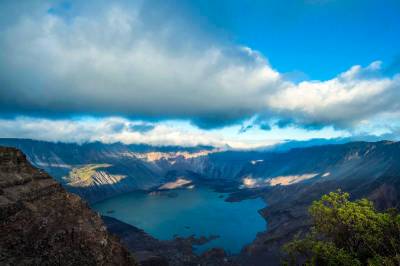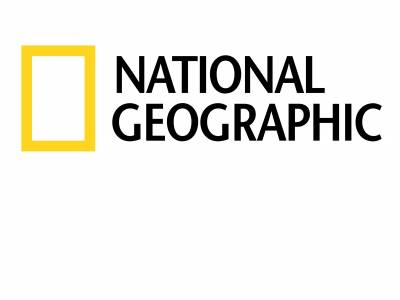BBC commits to Natural History with shows lined up to 2022
Charlotte Moore, BBC Director of Content, has today unveiled a series of landmark natural history programmes to take the BBC’s natural history offer into the next decade.
There will be five new series in the globally renowned Planet strand, which have proved hugely popular with audiences. These landmark series will help audiences everywhere to better understand the greatest issues affecting our planet and our relationship with the natural world. They demonstrate the BBC’s unique commitment to natural history programming of the highest quality.
One Planet: Seven Worlds will showcase the seven extraordinary continents created when incredible forces ripped apart the Earth’s crust millions of years ago. This seven part series, presented by Sir David Attenborough, will reveal how each distinct continent has shaped the unique animal life found there. It will broadcast later this year.
Green Planet will be the first immersive portrayal of an unseen, interconnected world, full of remarkable new behaviour, emotional stories and surprising heroes in the plant world. This is Planet Earth from the perspective of plants. It will broadcast in 2021.
Perfect Planet will be a unique fusion of blue chip natural history and earth sciences explaining how the living planet operates. This five part series will show how the forces of nature - weather, ocean currents, solar energy and volcanoes – drive, shape and support Earth’s great diversity of life. It will broadcast in 2020.
Frozen Planet II will take audiences back to the wildernesses of the Arctic and Antarctica. Ten years on from the original Frozen Planet, this series tells the complete story of the entire frozen quarter of our planet that’s locked in ice and blanketed in snow. It will broadcast in 2021.
Planet Earth III will be the most ambitious natural history landmark ever undertaken by the BBC. Combining the awe and wonder of the original Planet Earth, the new science and discoveries of Blue Planet II and Planet Earth II, and the immersive character-led storytelling of Dynasties, the series will take the ‘Planet Earth’ experience to new heights. It will broadcast in 2022.
Since the launch of Planet Earth in 2006, the BBC Planet titles have become a huge global hit and over a billion people have watched Planet Earth II and Blue Planet II in the last 3 years. This new five-strong slate is expected to involve over 10,000 days of filming– and will tell a truly global story.
BBC Planet sits within BBC Earth, the global factual brand for BBC Studios. The BBC Earth brand is present in over 169 countries and across multiple platforms including branded channels, digital platforms, innovative AR and VR extensions, live events, cinema and giant screen releases, publishing and ancillary products.
In Asia, the BBC Earth channel is available in Hong Kong, Indonesia, Laos, Malaysia, Mongolia, Myanmar, Philippines, Singapore, South Korea, Taiwan, Thailand and Vietnam. It is available as a block in Japan on WOWOW, and as joint-venture channel Sony BBC Earth in India.
Charlotte Moore, BBC Director of Content said: “The BBC is world famous for its natural history programming and these new series will raise the bar even higher. We know that audiences want shows that bring them the richest narratives, the best camerawork and the highest quality production values and they look to us to deliver this.
Viewers around the globe have been captivated by the incredible stories that the Planets series have told and now new technology allow us to explore even more of the natural world than ever before. These new series will look in depth at specific aspects of the natural world, giving revealing and sometimes surprising insights to animals and the habitats they live in. It’s our biggest ever commitment to natural history and one we are proud of.”
Tom McDonald, Head of Commissioning, Natural History and Specialist Factual, said: “Planet Earth II, Blue Planet II and most recently Dynasties reinvented landmark Natural History at BBC - delivering record breaking global audiences & receiving awards around the world. These new titles reveal the scale of our ambitions in Natural History - with a rich and innovative pipeline of titles up to 2022: the biggest commitment we have ever made in the genre.
I am also delighted to be bringing the long awaited Frozen Planet back to our screens a decade after the first series was on air, and of course thrilled that Planet Earth will be back in the BBC's centenary year. Both will continue our pledge to reveal not just the world's greatest wonders and animal behaviour but reflect the very real challenges the natural world faces.”
Details of new programmes are below:
ONE PLANET: SEVEN WORLDS (w/t)
One Planet, Seven Worlds is a brand new, ambitious landmark series for BBC One, presented by Sir David Attenborough. Each one-hour episode will transport viewers to a single continent and tell the story of its spectacular wildlife and iconic landscapes. Millions of years ago incredible forces ripped apart the Earth’s crust creating seven extraordinary continents. This series will reveal how each distinct continent has shaped the unique animal life found there.
We will discover why Australasia is full of peculiar and venomous wildlife; why North America is a land of opportunity where pioneers succeed; and what the consequences are for life racing to compete on the richest of all continents, South America. The series will feature remarkable, new animal behaviour from all the continents including the baking plains of Africa and the frozen waters off Antarctica.
In Asia, the biggest of all continents, we will showcase life at the extremes, whilst in Europe we will reveal surprising wildlife dramas hidden right alongside us. The series will celebrate the diversity of life on each of these continents, but also the many challenges faced by animals in a modern world dominated by humanity.
Epic landscapes and intimate behaviour have been filmed using the very latest techniques, allowing audiences to experience each continent like never before. By telling unknown, unseen and unexpected wildlife stories, we will uncover the fundamental truth about what makes each one of our seven worlds unique.
By telling unknown, unseen and unexpected wildlife stories, we will uncover the fundamental truth about what makes each one of our seven worlds unique.
One Planet, Seven Worlds (w/t), a 7x60’ series for BBC One, is made by BBC Studios Natural History Unit, co-produced with BBC America, Tencent Penguin Pictures, ZDF and France Télévisions. The Executive Producer is Jonny Keeling. It was commissioned by Charlotte Moore, Director, BBC Content and Tom McDonald, Head of Commissioning, Natural History and Specialist Factual.
GREEN PLANET (w/t)
Green Planet (w/t) will be the first immersive portrayal of an unseen, inter-connected world, full of remarkable new behaviour, emotional stories and surprising heroes in the plant world. This is Planet Earth from the perspective of plants.
Using brand new technological advances and over two decades of new discoveries, we take the viewer on a journey into a magical world. We discover that plants are as aggressive, competitive and dramatic as animals - locked in desperate battles for food, for light, to reproduce and to scatter their young. They are social - they communicate with each other, they care for their young, they help their weak and injured. They can plan, they can count, they can remember.
Plants are the stars of this series but there will also be box-office animals - plants are the arch-manipulators of the natural world. They bend the actions and lives of animals, including ourselves, to their own ends.
We will use new developments in robotics, moving time-lapse, super-detail thermal cameras, deep focus ‘frame-stacking’ and ultra-high-speed to travel beyond the power of the human eye and make visible the amazing, hidden life of the green planet.
Green Planet (w/t) a 5x60’ series for BBC One and PBS, is made by BBC Studios Natural History Unit. The Executive Producer is Mike Gunton. It was commissioned by Charlotte Moore, Director, BBC Content and Tom McDonald, Head of Commissioning, Natural History and Specialist Factual. For PBS the series is overseen by Bill Gardner, Vice President, Programming and Development. It was co-produced by The Open University.
PERFECT PLANET
Planet Earth is perfect. It orbits at the perfect distance from the sun; it tilts at just the right angle and has a decent sized moon to hold it in place. On top of that, the day-to-day workings of the planet naturally serve to nurture animals and plants. For instance, a global weather system circulates and distributes fresh water to all corners, and a cycle of marine currents delivers nutrients to even the deepest reaches of the ocean. As a result, there is literally no corner of our planet where life can’t be found.
Perfect Planet – in a unique fusion of blue chip natural history and earth sciences -explains how the living planet operates. This five part series will show how the forces of nature - weather, ocean currents, solar energy and volcanoes – drive, shape and support Earth’s great diversity of life. In doing so, it will reveal how animals are perfectly adapted to whatever the environment throws at them.
From the white wolves of Ellesemere Island to bears in Kamchatka; vampire finches of the Galapagos to golden snub-nosed monkeys of China, the series will combine a global view of the planet from space with intimate animal stories from the most spectacular habitats. From the Indian Monsoon to Hawaiian volcanoes; tidal islands of the Bahamas to the extremes of the Arctic winter, Perfect Planet will take the audience on a stunning visual journey that will change the way we see our home.
The final episode in the series looks at the dramatic impact of the world’s newest global force of nature – humans – and reveals what we need to do to in order to halt the dramatic loss of biodiversity
Perfect Planet, a 5x60’ for BBC One, is made by Silverback Films, co-produced by Tencent Penguin Pictures, France Télévisions and The Open University. The Executive Producer is Alastair Fothergill, and the Series Producer is Huw Cordey. It was commissioned by Charlotte Moore, BBC of Director Content, and Tom McDonald, Head of Commissioning, Natural History and Specialist Factual. It will TX in 2020.
FROZEN PLANET II
Back in 2011 the BBC aired Frozen Planet, the massively popular natural history series, celebrating life in our Poles. Ten years on, Frozen Planet II tells the complete story of the entire frozen quarter of our planet that’s locked in ice and blanketed in snow.
In this epic six – part series we explore this vast magical realm and discover frozen worlds of surprising variety and nature. From the frozen ocean of the Arctic, to the snowy forests and great plains of the far north, from the high-altitude peaks of our mountains to the ice-locked south of Antarctica. These are the last true wildernesses- so challenging for survival, that only a heroic cast of animals can live here. From polar bears to Siberian tigers, snow monkeys and penguins, each frozen world raises different challenges for the animals that brave the extreme conditions here.
Today they are united by a new threat. As temperatures rise at an unprecedented rate, our frozen planet is literally vanishing before our eyes. What will be the true impact on humans and wildlife? In this series we will follow the heroic scientists, braving some of the most dangerous places on earth, in a bid to find the answers.
With intimate new character stories, dramatic new behaviours and never-seen-before spectacles: Blue Planet II goes Frozen.
Frozen Planet II, a 6x60’ for BBC One, is made by BBC Studios Natural History Unit, co-produced by BBC America and The Open University. The Executive Producer is Mark Brownlow and the Series Producer is Elizabeth White. It was commissioned by Charlotte Moore, BBC Director of Content and Tom McDonald, Head of Commissioning, Natural History and Specialist Factual. It will tx in 2021.
PLANET EARTH III
Planet Earth III, the third in a trilogy, is a brand-new series for 2022 – set to be the most ambitious natural history landmark ever undertaken by the BBC. Combining the awe and wonder of the original Planet Earth, the new science and discoveries of Blue Planet II and Planet Earth II, and the immersive character-led storytelling of Dynasties, the series will take the ‘Planet Earth’ experience to new heights. It will take audiences to stunning new landscapes, showcase jaw-dropping newly-discovered behaviours, and follow the intense struggles of some of our planet’s most amazing animals.
Across eight episodes, the series will have a truly global scale, with new technology central to its approach. Crews will spend longer in the field than ever before, and using the latest technology, including robotic cameras, stabilised rigs and deep submersibles, will take viewers from the highest mountains to the deepest oceans, from the darkest caves to the hottest deserts.
Planet Earth III will also build on the approach of the BBC Studios Natural History Unit’s most recent landmarks, by reflecting the new realities of the natural world. It will not only reveal the greatest wonders of life on earth, but will also show the new challenges faced in the 21st Century by the animals and plants with which we share on our increasingly fragile planet.
Planet Earth III, an 8x60’ series for BBC One, is made by BBC Studios Natural History Unit., co-produced by BBC America and The Open University. The Executive Producer is Mike Gunton and the Series Producer is Jonny Keeling. It was commissioned by Charlotte Moore, BBC Director of Content and Tom McDonald, Head of Commissioning, Natural History and Specialist Factual. It will TX in 2022.






















Share
Facebook
YouTube
Tweet
Twitter
LinkedIn